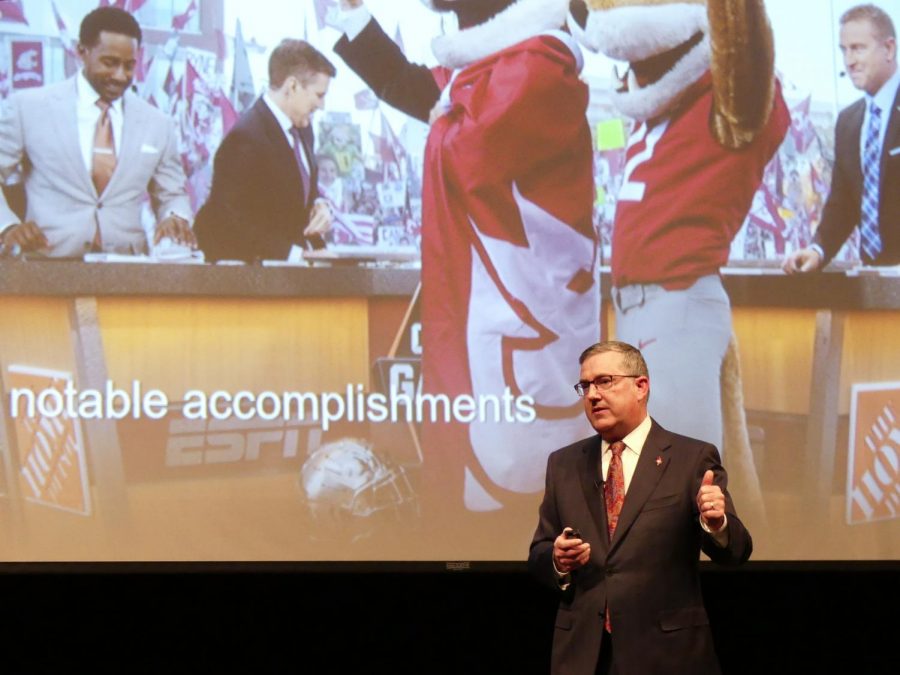Editorial board: Undressing the university address
President Schulz should give naked assessment of state of the university, not just outline successes
JACOB BERTRAM | DAILY EVERGREEN FILE
President Kirk Schulz’s State of the University Address primarily focused on the successful side of the year, keeping a wide distance from any shortcomings the university is facing. This address shouldn’t be just a celebration; it should be a reflection.
March 27, 2019
WSU President Kirk Schulz concluded his third State of the University address on Tuesday doing what most bureaucrats do: telling little more than half the story.
During his approximately 28-minute address, Schulz spent most of his time congratulating departments and faculty and outlining progress on the Drive to 25 goal.
Under Schulz this year, WSU experienced a record-high enrollment of 31,000 students system-wide, received $110 million in federal funds to build a new agricultural research facility in Pullman, and the College of Veterinary Medicine was ranked third in the nation in terms of federal research funding, among other developments.
Schulz should not be blamed for talking about positive performance but when reporting on the state of their institution, every president has an opportunity to speak candidly and make their report authentic.
In former President Gerald Ford’s first State of the Union address, he was the only chief executive who gave the nation a complete, balanced assessment of the Union, according to an article from the Huffington Post.
No president should be blamed for touting their accomplishments or the prosperity of their constituents, yet failures and inadequacy cannot be just an afterthought in a speech meant to represent the truth.
One notable exception to this trend was when Schulz described the number of African American faculty on campus as being “criminally low.” But that statement was only prompted by a question during the Q&A portion of the event, not in Schulz’s speech.
As people who stake time and money on the quality of their education, we shouldn’t have to be the only ones who point out flaws. We shouldn’t have to wait for public comment to hear what is being done to fix issues.
During his speech, Schulz said the university shouldn’t shy away from discussions about how best to represent Washington and what our values are as an institution.
In the same way, Schulz should not shy away from telling the community when the state of the university is a mix of good and bad.
WSU is proud of all Schulz does for the university, and for dedicating a majority of his time to answering questions, but giving a speech that does not balance failure and success makes the speaker seem out of touch and alienates listeners who have not seen the same WSU Schulz sees.
At the end of his speech the presentation slide proclaimed that “It’s a great time to be a Cougar.”
This just isn’t true for everyone at WSU. Acknowledging that takes humility and transparency, two qualities people should expect of their leaders.









